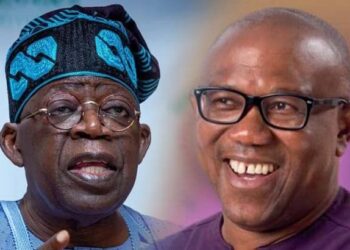The chances of President Buhari winning a second term mandate from Nigerians will be scuttled if the country’s misery index remains at the current levels.
A misery index is an indicator that is used to determine how economically well off the citizens of a country are, and is the sum of the unemployment, underemployment and inflation rates of the particular period. Nigeria’s misery index has been on the rise consistently in the last one half years and does not bode well for the political ambitions of the President, if he has any.
An increase in the misery index is triggered by an increase in either of inflation, unemployment or underemployment, and signifies economic discomfort and negative consumer sentiment. For Nigeria, all the three variables have been on the rise.
Nigeria’s unemployment rate now stands at 13.9 percent, underemployment is at 19.7% (the most recent published figures), and the latest inflation figures for December 2016 is at 18.55%. This takes Nigerian’s misery index at a record 52.15 in the third quarter of 2016, the fourth highest in sub-Saharan Africa. This basically means Nigeria is the fourth most miserable place to live in sub-saharan Africa.
Experts say of most concern is the fact that the index has now risen for the last six quarters, an indication of the increasing misery in the country.
“There is an inverse relationship between a country’s misery index and the serving political leader; such that when the index accelerates, the incumbent leader’s popularity among the people decreases,” say analyst at Financial Derivatives Company.
“It is believed that consecutive rises in the misery index usually lead to a decline in the favourability ratings of the serving administration, and could result in a re-election loss for the incumbent,” said Bismarck Rewane, the chief executive officer at advisory firm, Financial Derivatives Company (FDC).
“This was the case for the United States under President Ford and Jimmy Carter, whose terms saw the misery index reach all-time highs. Likewise, Nigeria’s 2015 elections reflected this hypothesis,” Rewane observed.
Last year’s presidential elections in Ghana and Gambia are also proof that electorate grows impatient with their political leaders when their misery worsens.
“If nothing changes to ease the pain of Nigerians within the next three months, it could spark a civil unrest which would be damaging if the current administration is eyeing a re-election at the next poll,” Rewane said.
He added that, “Incentivising private capital through consistent and market-driven policies into sectors that are heavy employers of labour are ways of curtailing the rising misery index.
“Nigeria’s 2019 elections may seem far off, but considering that this current administration has barely four quarters to bring in the kind of changes to stimulate the economy, there is really no time,” said Zeal Akaraiwe, CEO of Advisory firm, Graeme Blaque.
“Whatever happens within the remaining quarters can make or mar the current administration,” Akaraiwe added.
President Buhari rode into power in 2015 on promises to improve the people’s standard of living by creating jobs and fighting corruption.
However, the former military ruler has had it rough and his administration has seen the highest level of unemployment in six years, at 13.9 percent according to NBS data.
The International Labour Organisation (ILO) forecast of a global unemployment rate of 5.9 percent for 2016 and 2017 implies that Nigeria’s unemployment rate is more than double the global average.
BusinessDay analysis indicates that unemployment may continue to grow unabated.
To keep unemployment rate at the current 13.9 percent, Nigeria must create 2.6 million jobs annually, given that the country’s labour force has grown at an average of 2.6 million in the last five years.
However, total jobs created in the three quarters of 2016 is less than 500,000 jobs, with the highest number recorded in the third quarter at 187,226, which in contrast to a quarterly rise of 20 percent, represents a decline of 61 percent compared to the same period last year.
Low investor confidence is the biggest culprit in declining job creation, as companies shelve expansion plans amid a challenging business climate, experts observe.
For inflation, the second variable that feeds into a misery index, analysts anticipate a decline in 2017 on the back of positive base effects, constrained purchasing power and mounting unpaid salaries.
FDC analysts forecast inflation to cool to 12 percent in 2017.












